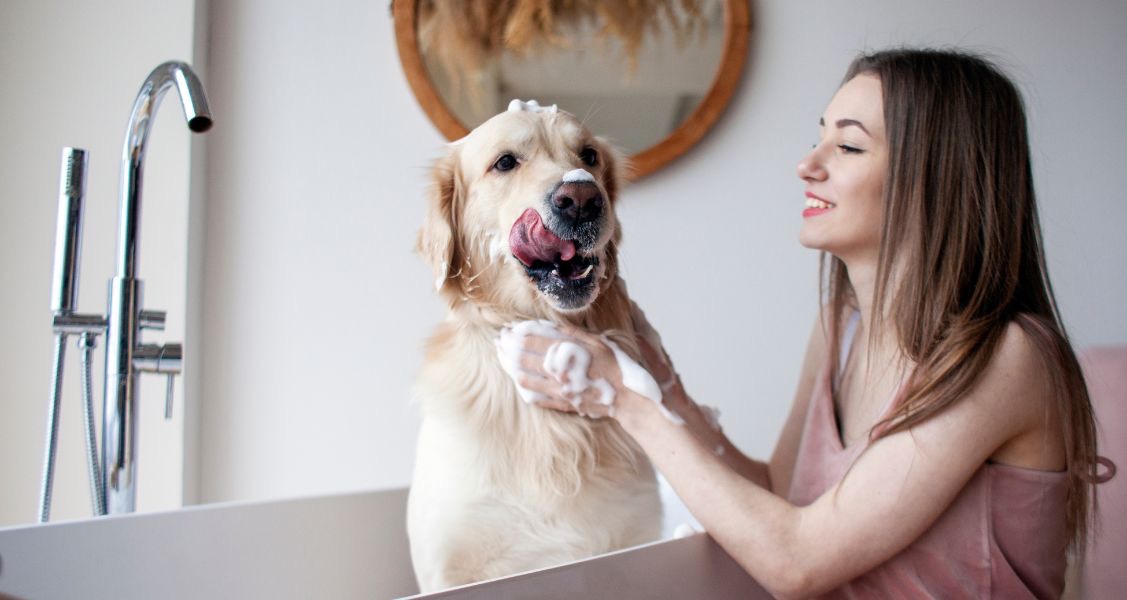4 Practical Ways To Protect Your Dog From Ticks
May 12, 2024

As dog owners, few things are as important as keeping our loyal friends safe and healthy. Unfortunately, ticks pose a significant threat to our four-legged companions. Explore four practical ways to protect your dog from ticks and ensure they have a tail-wagging good time, no matter the season.
Regular Grooming
Proactive grooming is an excellent first line of defense against tick infestations. Regular baths help your dog smell better and provide an opportunity to check for and remove any ticks before they can bite. Use a fine-toothed comb to detect and eliminate these pests. Focus on areas where ticks tend to hide, including behind the ears, under the legs, and around the tail area.
For long-haired breeds, a trimmed, well-maintained coat can significantly reduce the likelihood of ticks finding a suitable hiding spot. While grooming your dog, be vigilant and ensure you check every deposit of dirt or tuft of fur.
Medication
Regular use of tick prevention medication is crucial. There is a plethora of options available, ranging from oral to topical treatments. Some medications work by repelling ticks, while others kill them on contact. The choice depends on your dog’s individual needs, lifestyle, and health concerns. Consult your veterinarian to find the most suitable medication, as they can provide professional advice tailoring the regimen specifically to your pet.
It’s also important to stay consistent; missing a dose can leave your dog vulnerable to ticks. Set a reminder, mark your calendar, or sync up with another regular task, such as bill payments, to ensure medication becomes a routine part of your dog’s care.
Environmental Control
Your dog’s immediate environment is another critical factor in the tick battle. Keeping your yard tick-friendly means eradicating tall grasses, shrubs, and overgrown areas where ticks and their hosts (like rodents and deer) thrive. Regularly mow your lawn and remove any leaf litter. Consider using tick control products in your outdoor area, including sprays and tick tubes, which target pests while being safe for your pets.
When taking your dog for walks, stay on well-groomed trails and away from dense vegetation. Always check both you and your pet after any outdoor excursion. These simple actions could prevent a tick infestation within your home.
Stay Informed
Stay informed about the dangers of tick bites in pets, as well as tick hotspots and the diseases they carry in your region. First and foremost, ticks can transmit a variety of serious illnesses such as Lyme disease, Rocky Mountain spotted fever, and ehrlichiosis. Each of these can cause long-term health issues in dogs, so recognizing the signs and symptoms early is essential.
Knowing the behavior and appearance of different tick species can also be invaluable. Education empowers you to take the necessary steps to protect your dog effectively—not just from ticks but from the diseases they carry. Regularly check in with your vet and stay updated on the latest information in tick prevention and treatment.
Protecting Your Pup
By incorporating these practical ways to protect your dog from ticks into your dog care routine, you’re ensuring your pet lives a safe and healthy life. Tick prevention doesn’t have to be overwhelming. With the right education and these simple actions, you can enjoy a tick-free environment for your furry friend, enabling many years of happy memories and wagging tails.


Disclaimer: healthcareforpets.com and its team of veterinarians and clinicians do not endorse any products, services, or recommended advice. All advice presented by our veterinarians, clinicians, tools, resources, etc is not meant to replace a regular physical exam and consultation with your primary veterinarian or other clinicians. We always encourage you to seek medical advice from your regular veterinarian.

